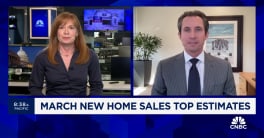Back to the Oxley hearings.
In addition to the three witnesses from government agencies, Department of Justice, Government Accountability Office, and Federal Trade Commission who testified in general that real estate lacks real competitiveness, there were four other witnesses who testified against the industry. All four definitely have a dog in this fight.
Kimberly Gorsuch-Bradbury, Senior Vice President, Real Estate Networks, LendingTree,
LLC described how her company had evolved since its founding in the late 1990s
from a referral mechanism for people seeking mortgages to employing the same
techniques to provide consumers access to a network of real estate agents, allowing
them the opportunity to comparison shop.
Ms. Gorsuch-Bradbury reiterated many of the statistics about consumer preference
for Internet services when they purchase properties and particularly
focused on limitations on access to MLS aimed at agents providing unbundled
services and on state regulations restricting commission rebates to consumers.
In the former instance she quoted studies that reported that only 7 percent
of sellers said they wanted their agent to help with paperwork, inspections,
and preparing for settlement and only 10 percent of buyers said that they wanted
help with price negotiations and paperwork.
"Many home sellers," she said, "might want to purchase only listing services, a yard sign, and maybe one open house from the broker. The seller might opt to perform other sales functions him or herself." She reported that 59 percent of all buyers and 74 percent of first-time buyers said that their agents helped them to understand the process, making this the highest ranked benefit to buyers.
"However, at least ten states now require real estate brokers to provide a pre-determined bundle of services to their clients...(and prohibit consumers from choosing only the real estate brokerage services they want.) Obviously this impedes consumer choice and prevents lower-cost alternatives."
Eleven states, she said, prohibit or limit a real estate broker from passing on savings in the form of a real estate rebate.
Mr. Aaron Farmer is a broker for a discount realty firm in Austin, Texas. He said that Texas is one of those10 states that have passed laws restricting less than full service real estate brokerage. Since passage of that law he said most of his agents have decided to offer limited menus only to experienced homebuyers and investors and one has discontinued offering limited services entirely. He has also encountered resistance from real estate publications when seeking to place ads.
Glenn Kelman, President and CEO of Redfin Corporation in Seattle was the third private sector witness. You may remember that we profiled Redfin in February. Redfin is a virtual real estate firm which will refer a buyer to a traditional broker or provide them with an unbundled list of services which includes composing, submitting, and negotiating an offer and subsequent counteroffers and handling some of the details leading to closing but does not show properties. For that the buyer is referred to the listing agent (or a random agent) who will not be compensated for this service. The Redfin buyer receives a rebate on two-thirds of the commission share that is typically paid to the agent presenting the successful offer.
Kelman claimed that his firm's innovative methods have "engendered resistance on what seems to be a new scale."
"Competing agents have threatened us with violence, intimidated our customers and tried to block their offers. Sixty-three percent of our customers report meddling from other agents, who in the absence of clear consumer law make up grade-school legal mumbo-jumbo to scare our clients. Many agents have told our clients that the sellers would never see their offer because it came from Redfin."
In spite of this, Kelman said that a Redfin agent completes twice the number of transactions each month than the average traditional agent completes in a year and that the corporation's sales have been doubling month over month.
The Redfin executive asked that Congress act to empower the consumer, not the
realtor by giving brokerages of all types fair and equal access to multiple
listing services, and empowering the Federal Trade Commission to regulate
states' minimum-service and anti-rebate laws.
But no one declared war on the NAR and on Realtors the way the Consumer Federation
of America did. Stephen Brobeck, the Federation's Executive Director in his
testimony and in an associated press release called real estate brokerage "a
cockamamie system," for a number of reasons that went well beyond the
"they won't let me play in their sandbox" testimony of the other three non-government
witnesses. Brobeck addressed issues of actual commission levels, training and
other requirements for entry into the brokerage community, and the role that
the National Association of Realtors� plays in this system. For that reason,
I am going to put that testimony aside (he had little more to say about the
central issues of the hearings than the other private sector witnesses) as it
is worthy of a separate discussion at an early date.
Finally two witnesses were allowed to fire back; a representative of the NAR and an executive with the RE/Max Realty franchise. We will give a summary of their testimonies later as well as some comments from Blanche Evans of Realty Times who, it appears attended the hearings. Actual transcripts are not yet available - we have been quoting from planned remarks released by the various witnesses. Finally, we will ask those of you with an interest in this subject to respond - there are points to be made on each side and we would like to hear them. Again, complete contents of the (planned) testimonies can be read at www.financialservices.house.gov/hearings.asp.







